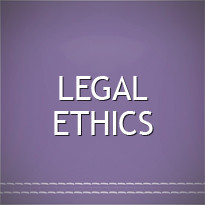52 Phil. 399 – Legal Ethics – Practice of Law is a Privilege
Felipe Del Rosario took the bar in 1925 for the second time and he failed. He again took it in 1926 and he failed again. In 1927, he filed a motion before the Supreme Court in which he alleged that there was a mistake in the computation of his exam results in the 1925 bar exams. He was then admitted to the bar.
HOWEVER, a subsequent investigation by the city fiscal uncovered that Del Rosario, together with one Juan Villaflor – a former employee of the Supreme Court, falsified some documents to make it appear that Del Rosario actually passed the 1925 bar exams. The two were subsequently charged with falsification. Villaflor was convicted as he pleaded guilty but Del Rosario was acquitted for lack of evidence. The fiscal however recommended Del Rosario to surrender his certificate of attorney.
ISSUE: Whether or not the recommendation by the fiscal is correct.
HELD: Yes. The mere fact that Villaflor was convicted proves that Del Rosario is unworthy of the certificate of attorney. The crime which Villaflor is proven guilty of has benefited only Del Rosario and it is impossible that the latter has no knowledge of this illegal machination.
But shouldn’t the Supreme Court just allow Del Rosario to take the bar exams again?
No. The practice of the law is not an absolute right to be granted everyone who demands it, but is a privilege to be extended or withheld in the exercise of a sound discretion. The standards of the legal profession are not satisfied by conduct which merely enables one to escape the penalties of the criminal law. It would be a disgrace to the Judiciary to receive one whose integrity is questionable as an officer of the court, to clothe him with all the prestige of its confidence, and then to permit him to hold himself out as a duly authorized member of the bar.


